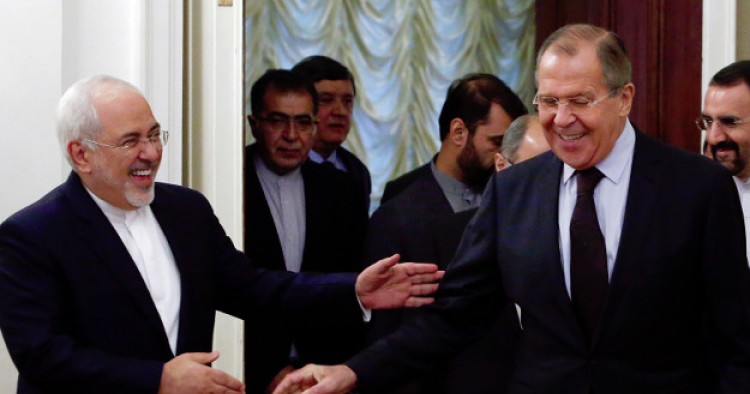Iranian media quoted Foreign Minister Javad Zarif as stating that Iran and Russia “need to have far more extensive relations” and that “few countries in the world have as deep and historical relations as Iran and Russia.” Zarif’s unusually warm remarks about Russia were delivered on the occasion of 515 years of Iranian-Russian ties. Zarif was quick to point out that closer cooperation between Iran and Russia will be a major stabilizing factor for the future of the Middle East and Central Asia.
Zarif is not among the Russophile in Tehran and the timing of his remarks is also most likely shaped by other developments. In Tehran, Javad Zarif, who has spent one-third of his life in the United States, is often accused of being too close to the Americans. Meanwhile, his extremely warm remarks about Russia come days after US President Trump banned all Iranian travelers to the United States, a decision that has created much uniform anger in Tehran.
From his vantage point in Tehran, Zarif has little option but to distance himself as much as possible from Washington, although he will do his best to make sure the Americans do not abandon the 2015 nuclear agreement. But Zarif’s comments aimed at Russia might also suggest Iranian fears that Moscow might be convinced by Trump to cut Iran lose in return for American-Russian cooperation in the Middle East. As one Iranian newspaper asked, “Can Trump undo the Iran-Russia-China triangle?” Such headlines reflect deep Iranian fears about what a potential American-Russian détente would mean for Tehran.
The Middle East Institute (MEI) is an independent, non-partisan, non-for-profit, educational organization. It does not engage in advocacy and its scholars’ opinions are their own. MEI welcomes financial donations, but retains sole editorial control over its work and its publications reflect only the authors’ views. For a listing of MEI donors, please click here.













